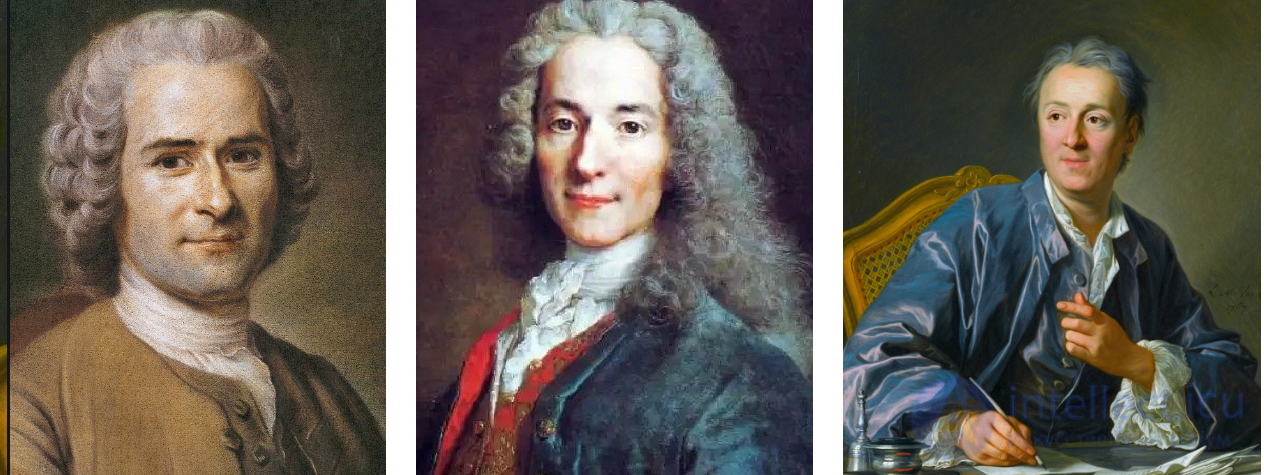Lecture
Their common feature is domination of nationalism, which sent its criticism in France to questions of a political and social nature, while the German enlighteners of this era were more concerned with resolving religious and moral issues.
The main desire of enlightenment was to find, through the activity of the human mind, the natural principles of human life (natural religion, natural law, natural order of the economic life of the physiocrats, etc.).

From the standpoint of reason, the French enlighteners struggled with the medieval worldview, speaking against the Catholic Church, against feudal remnants and justice, they made a great contribution to the development of the educational philosophy of history. Belief in historical progress was associated with the idea of an "enlightened monarch" (Voltaire) or a constitutional monarchy following the English model and the theory of "separation of powers" (Montesquieu). Figures of the 2nd stage of the French Enlightenment - D. Diderot, K. A. Helvetius, P. A. Holbach, and others - were mostly materialists and atheists. The highlight of this stage was the release of the Encyclopedia, or the Explanatory Dictionary of Sciences, Arts and Crafts (1751-80). This publication was attended by Diderot - the main organizer.
Comments
To leave a comment
Journalism History
Terms: Journalism History